Three months after I graduated from the University of Texas (May 1976), a young man from the rough-and-tumble oil-patch town of Freer matriculated there. He would go on to much greater heights than I have. Steve McMichael—dubbed “Bam-Bam” by teammates—played four years of football for coaches Darrell Royal and Fred Akers. Twice all-Southwest Conference and a consensus all-American as a senior, he was never better than the day in 1979 when the Longhorns beat Oklahoma 16-7. He had 13 tackles, 9 of them solo stops of Heisman Trophy winner Billy Sims.
After his last game in orange and white, a 14-7 loss to Washington in the Sun Bowl, he was the school’s all-time leader in tackles (369) and sacks (30). A finalist for the Lombardi and Outland Awards in 1979, McMichael earned team and Hula Bowl MVP honors.
The New England Patriots took him in the third round of the 1980 NFL draft, but things did not go well up Boston way. He played in just six games, suffered a back injury, offended some of the coaches with his boisterous antics and got cut. If McMichael was humbled, he rebounded quite well. When the Chicago Bears offered him a free agent contract, he took full advantage. This relentless defensive tackle, this wild rattlesnake hunter from south Texas, could bull-rush an offensive lineman, drop a quarterback and tell them what he had just done. At Soldier Field and other NFL stadiums, he would set a franchise record for the most consecutive games (203) played. It was in Chicago that he got his other nickname of “Mongo” after the character (played by former Detroit Lion Alex Karras) in Blazing Saddles who punched a horse and knocked him flat.
He was a first-team all-pro in 1985 and 1987, and a second-teamer thrice. The 1985 Bears, I need not tell you, were one of the greatest teams in pro football history, bludgeoning the New England Patriots 46-10—that must have been sweeter than honey for McMichael—in Super Bowl 20. He and William “Refrigerator” Perry lifted coach Mike Ditka onto their shoulders and carried him off the field that night. He did not, for some reason, appear in the “Super Bowl Shuffle” video.
Including one final season with the Green Bay Packers, he compiled a very impressive stat line: 847 tackles, 95 sacks, 3 safeties, 13 forced fumbles, 17 recovered fumbles and 1 interception. I am getting ahead of myself here, but those numbers compare quite favorably with other defensive tackles in the Pro Football Hall of Fame.
A teammate for 11 of his 13 seasons in Chicago—and against whom he played between 1977 and 1979 when Baylor and UT met—was linebacker Mike Singletary. “When I was a kid, one of my heroes was John Wayne…. Steve McMichael was John Wayne,” Singletary said. “He may have been shot in the arm, may have been stabbed in the back, but if you were counting on him to get something done, he was going to get it done.”
After retirement, McMichael stayed in the Windy City, lent his name to a couple of restaurants, was a presence on local sports radio shows, sang “Take Me Out to the Ballgame” at Wrigley Field, had a five-year rasslin’ career, got inducted into the College Football Hall of Fame, ran for mayor of Romeoville, Illinois (he lost to the incumbent but still managed to get 39% of the vote) and coached the Chicago Slaughter of the Continental Indoor Football League from 2007 to 2013; they won the championship of that now-defunct league in 2009. McMichael, twice nominated for the Pro Football Hall of Fame, did not come close to being voted in. He insisted it was due to sports writers who held a grudge against him for “not kissing their asses.”
He paid a price for all those years of football glory, undergoing eight knee operations and having numerous injuries and concussions. McMichael saw what the game did to others, none more tragically than Dave Duerson, a Bears teammate from 1983 to 1989 who suffered from chronic traumatic encephalopathy (CTE) and ended up committing suicide. Although pain was a constant for McMichael, he endured it stoically. But around 2018, he noticed that he was having trouble with such mundane tasks as opening a bottle or signing his name. In the summer of 2020, his wife Misty took him to the Mayo Clinic in Rochester, Minnesota to get diagnosed. A neurosurgeon gave them bad news, stating that it looked like amyotrophic lateral sclerosis (ALS, or “Lou Gehrig’s disease”), which attacks the nerve cells responsible for muscle control. A second opinion at Rush University Medical Center confirmed it, as did a third at Northwestern Memorial Hospital and a fourth at the University of Illinois Hospital.
On April 23, 2021, McMichael announced that he had the disease—for which there is no cure or even treatment—and would not be making any more public appearances. He went quickly from a wheelchair to a bed in his house in Homer Glen, Illinois. As McMichael became progressively smaller (now barely half his NFL playing weight of 270 pounds), he got visits from Singletary, Dan Hampton, Gary Fencik and other guys with whom he had gone to battle over the years.
His absence from the Pro Football Hall of Fame gnawed at many of them as well as his fans. Despite the passage of more than three decades since he last put on a Bears uniform, McMichael is still held in high regard in Chicago and elsewhere. People started petitioning and writing to Jim Porter, president and CEO of the Hall. Why, they asked, had McMichael not been enshrined? His many accomplishments were recited, of course, along with the fact that he was in the fight of his life.
Since his final game (a 35-9 Green Bay loss to the Dallas Cowboys in the 1994 playoffs) took place more than 25 years ago, it was up to the Hall’s seniors committee. Fully aware of McMichael’s condition, they started with 100 candidates, cut that to 31 and then 12 and finally 2, Randy Gradishar and McMichael; non-seniors voted in were Julius Peppers, Dwight Freeney, Patrick Willis, Devin Hester and Andre Johnson.
To what extent was the seniors committee influenced by McMichael’s lamentable condition? Was it to some degree a sympathy vote? I assume they knew that he has long since lost the ability to talk or even move, that he has been a frequent visitor to local emergency rooms, that at least once he has gone into a coma and come out of it, that he gets assistance from a tracheostomy tube, a feeding tube, a ventilator, a cough-assistance machine, a saliva-suction machine and an oxygen tank, and that he takes a long list of medications. Misty, who speaks on her husband’s behalf, has said loudly that he merits a place in the Hall. If she has not mentioned that retired NFL players are four times more likely to develop and die from ALS (or its related condition, CTE) than the rest of the adult male population, she should have.
In early August 2024, there will be a parade in downtown Canton, Ohio, followed by the usual ceremonies and speeches about and by the seven men being inducted. But only six of the inductees will stand at the rostrum and speak. I hope it does not seem unkind for me to state that McMichael has been going downhill fast. I see no way he can hold on for another 5 1/2 months, even with extreme measures being taken to keep him alive. He has punched his ticket for the Pro Football Hall of Fame, so let him have as peaceful a death as possible.
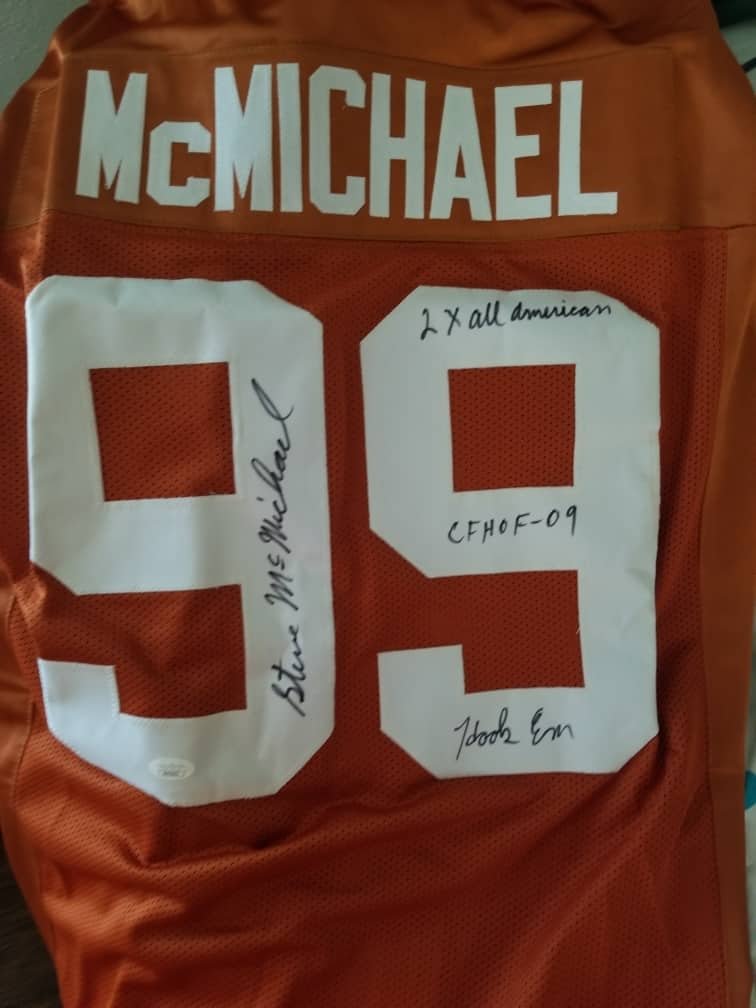
Bam-Bam’s UT jersey…
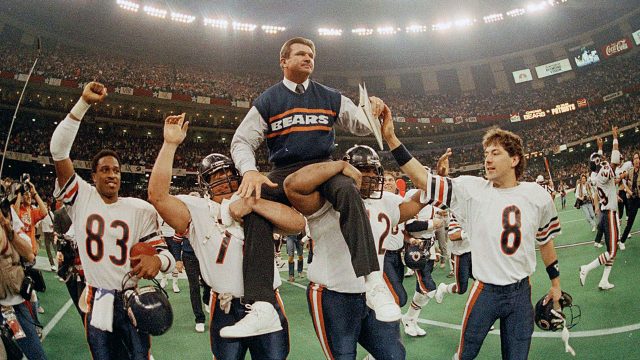
After Super Bowl 20 in New Orleans…
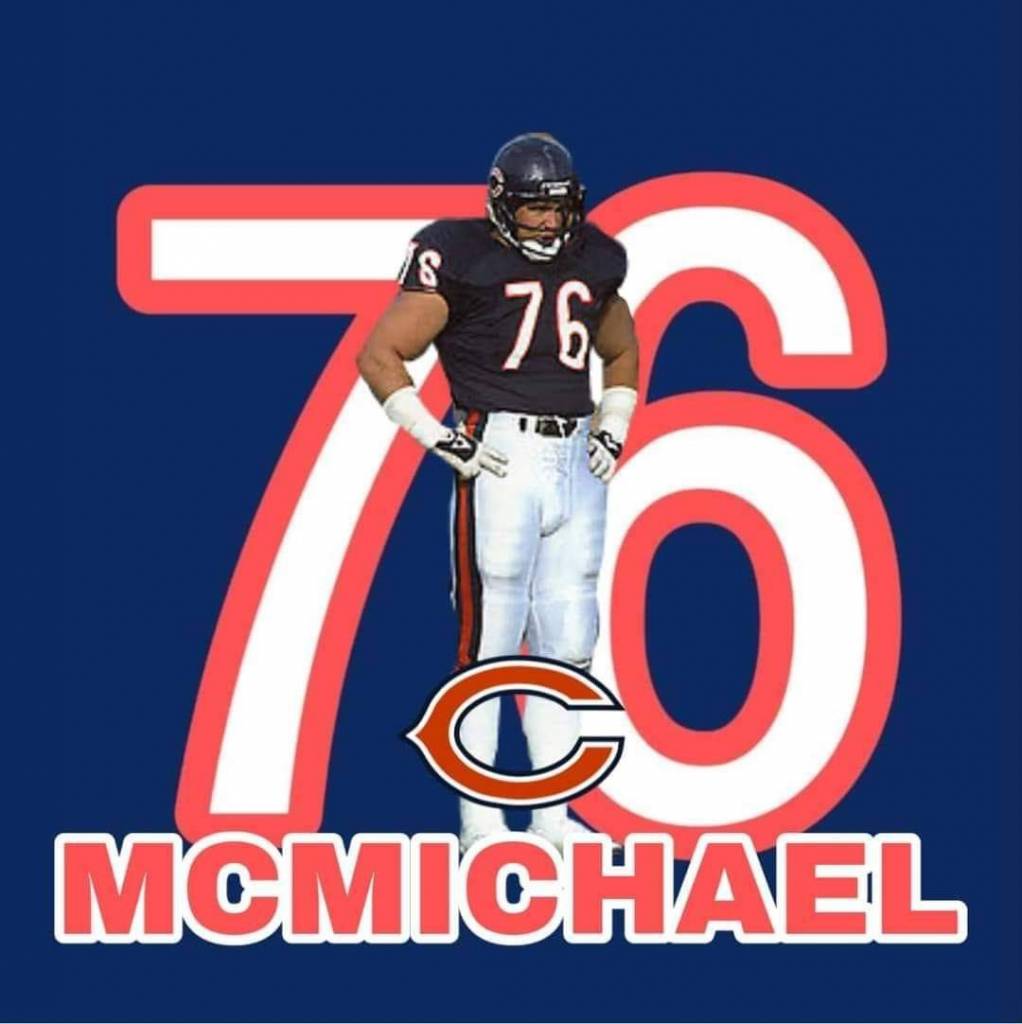
Mongo…
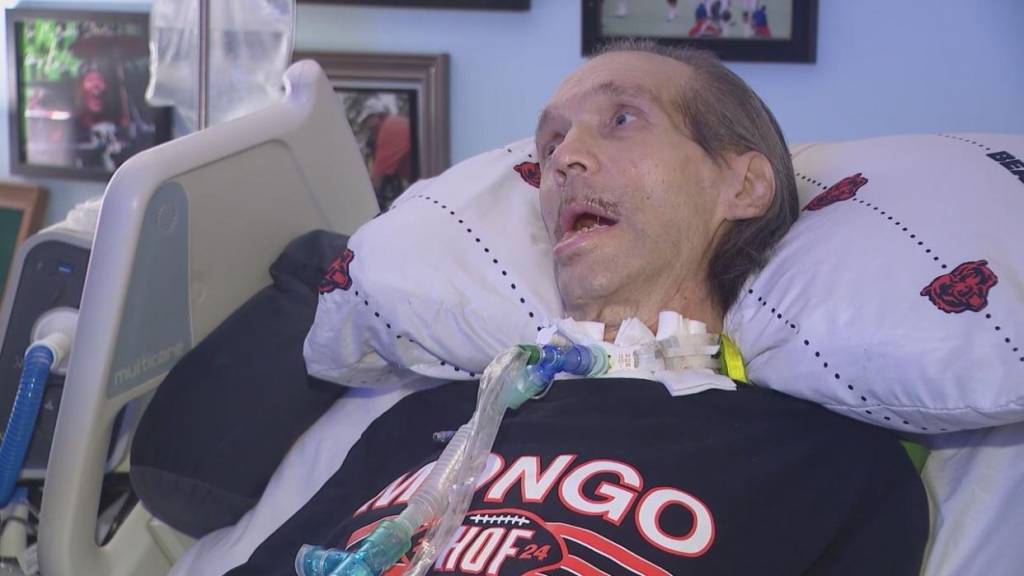
Steve McMichael in recent days…

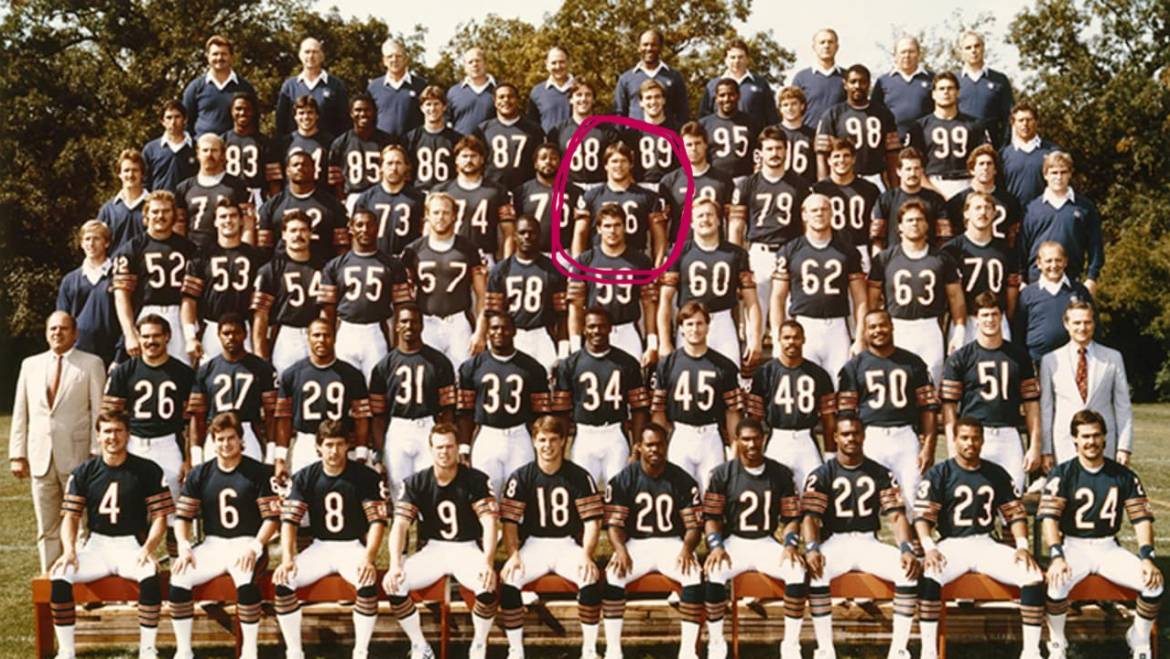
Add Comment